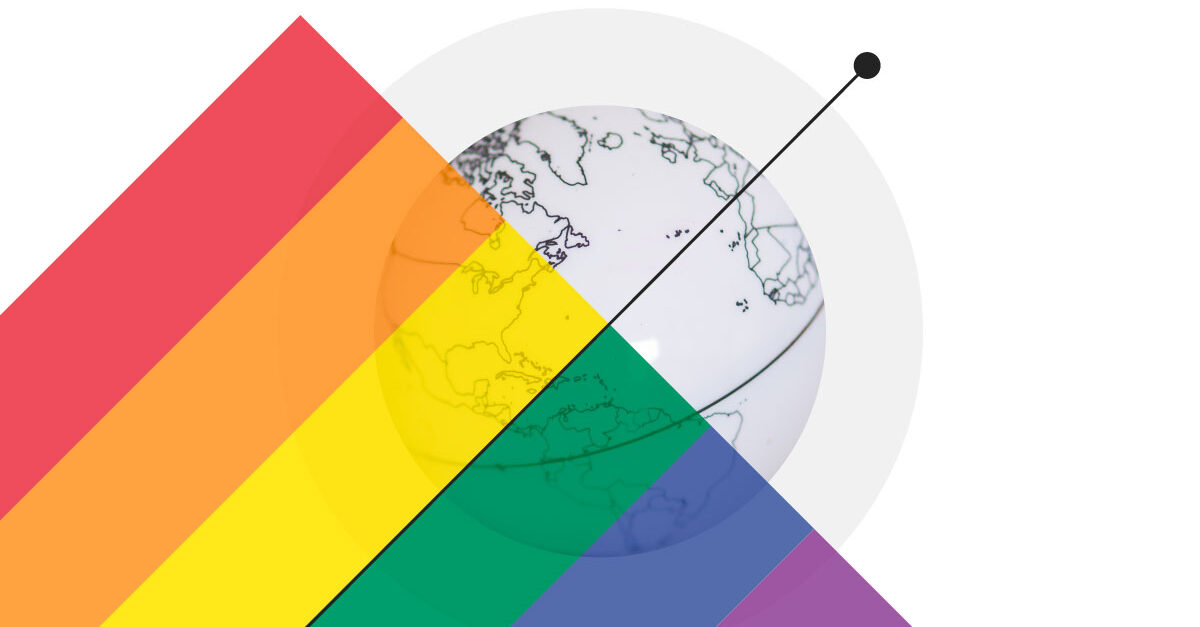Earlier this month, Canada made history by becoming the first country in the world to provide census data on transgender and non-binary people! This type of data is so important not only because it allows all Canadians to see themselves in national statistics, but also because it helps to fill a long-standing information gap on gender diversity. So, what did we learn?
Of the nearly 30.5 million people in Canada aged 15 and older, 100,815 identified as transgender or non-binary. (That amounts to about one in 300). Non-binary and transgender people are younger on average than cisgender people. (Just under 1 in 100 young adults aged 20 to 24 identified as non-binary or transgender). A majority of non-binary individuals in Canada live in an urban setting. (Just over half of non-binary people aged 15 and older reported living in one of Canada’s six largest urban centres).
This census update is a big step in representation on a national scale. At the community level, colleges and institutes are a natural fit for local support, gender-related resources and training, and positive spaces!
- At Centennial College’s Centre for Global Citizenship Education & Inclusion, the Positive Space Program creates respectful and safe learning environments for lesbian, gay, bisexual, trans, two-spirit, intersex, and queer (2SLGBTQQIA) students, employees and community members, as well as for their allies and people researching 2SLGBTQQIA issues.
- At Dawson College, the two-year pre-university Women and Gender Studies program explores women’s experiences throughout history, constructions and representations of gender in the media, sexual identities, and cultural perspectives of gender.
- At Algonquin College, Positive Space Workshops are 3-hour information sessions that help employees build practical skills and knowledge to counter homophobia, transphobia, and heterosexism in college settings. The sessions also provide employees with resources and materials to act as a Positive Space resource person!
- At Cégep de Sherbrooke, the inclusion of gender and sexually diverse people is a fundamental part of the cégep’s success plan and is outlined in a formal declaration on the subject. The cégep also has a strategy to hear direct from LGBTQ+ students and invites any student with particular needs to reach out directly to Student and Community Affairs.
- At Camosun College, the Pride Collective is organized by the college’s Student Society and gives individuals an opportunity to take an active role in creating a healthy, involved, safe and supportive community on campus for those who identify as LGBTQ2IA+. The Pride Lounge is also home to a resource library with books and other materials on LGBTQ2IA+ issues.
- At Humber College, the LGBTQ+ Resource Centre promotes safer, braver, positive spaces at the college. It also serves as a dedicated space for folks to connect with one another, access resources, and build community.
- At Nova Scotia Community College, the library’s 2SLGBTQ+ Resources Subject Guide includes an overview of gender identity, expression, and terminology for allies, demographic profiles and statistics that help paint a better picture of LGBT Canadians, and links to local community organizations.
- At SAIT, the Pride at SAIT committee runs several initiatives to ensure that LGBT and non-binary students feel welcome and safe, including universal, accessible and gender-neutral washrooms. SAIT also provides tips to guide students through the process of changing gender markers and preferred names on official documentation.
- At Red Deer Polytechnic, LGBT+ Student Wellness counselling services and supports are inclusive, confidential, and available free to all students, with a special focus on the mental health of LGBT students, who often experience higher rates of bullying, self-harm, and suicidal thoughts.
- At Cegep de l’Abitibi-Témiscaminque, the Committee for Sexual Diversity, founded in collaboration with the cégep’s Student Association actively works to create safe spaces that are open to exchange, identify the needs of the LGBTQ+ community on campus, offer resources, and educate the campus population about sexual diversity, prejudice, and common misconceptions.
May 17 is also the International Day Against Homophobia, Transphobia & Biphobia, a worldwide celebration of sexual and gender diversities!
- Did you know May 17 marks the anniversary of the day in 1990 when the World Health Organization took the long overdue step of declassifying ‘homosexuality’ as a mental disorder?
- Make sure to join us for the next episode of Perspective LIVE! (read below)
Pride is about community, visibility, and celebrating being true to yourself. Representation is an essential part of treating everyone – whether someone identifies as lesbian, gay, bisexual, transgender, queer, Two-Spirit, non-binary or uses other terms to describe who they are – with dignity and equality!

